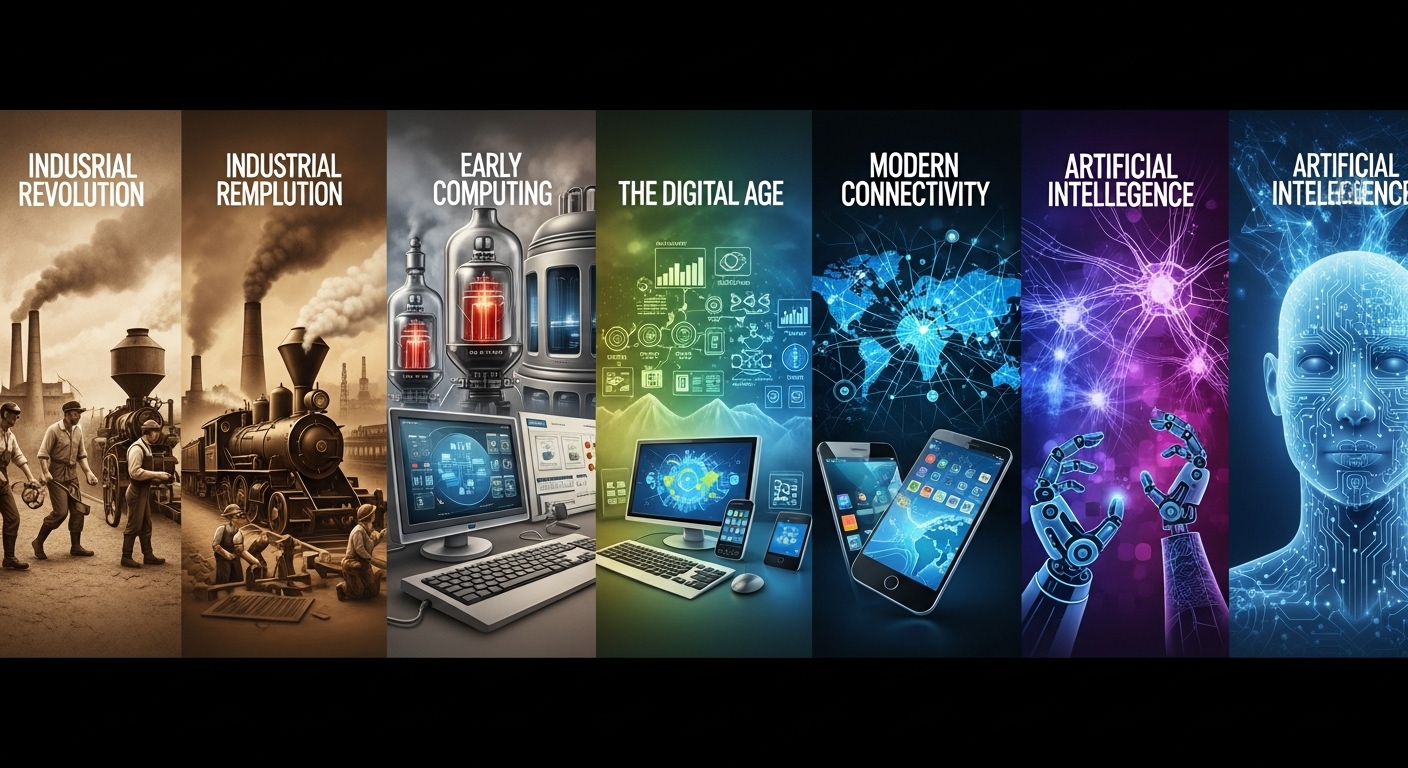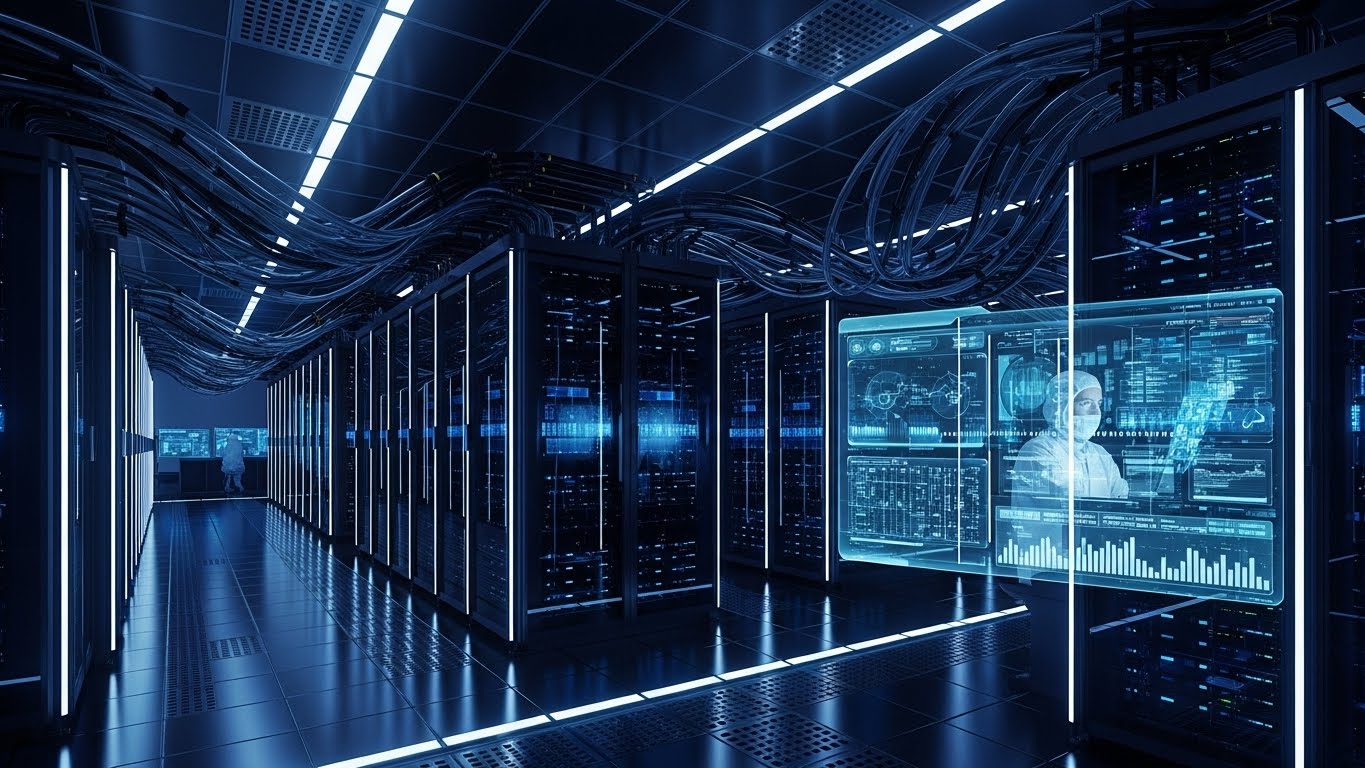Technology has always been a driving force behind human progress. From the invention of the wheel to the rise of artificial intelligence, technology shapes the way we live, work, and interact with the world. In this article, we explore the evolution of technology, its transformative effects on society, and what the future holds.
Early Technological Innovations
Human civilization has been defined by its technological achievements. Early innovations such as fire, tools, and agriculture provided the foundation for societal growth. The development of the wheel allowed for transportation and trade, while basic tools improved productivity in agriculture and hunting. Over time, these simple technologies laid the groundwork for more complex inventions.
The Industrial Revolution marked a turning point in technology, as machinery replaced manual labor, leading to mass production. Steam engines, textile machines, and mechanized tools transformed economies, creating new opportunities and challenges. This period demonstrated that technological progress can profoundly alter social structures, economies, and daily life.
The Rise of Information Technology
The 20th century introduced a new era dominated by information technology. The invention of computers revolutionized the way humans store, process, and share information. Initially large and inaccessible, computers gradually became smaller, faster, and more affordable. This transition paved the way for the digital age, where information became a critical resource.
Networking technologies further accelerated this transformation. The creation of the internet allowed for instant global communication, connecting people across continents. Email, instant messaging, and online forums revolutionized personal and professional interactions. Information technology transformed not only business operations but also education, entertainment, and social engagement.
Mobile Technology and Connectivity
The advent of mobile technology marked another significant shift. Smartphones and tablets brought computing power into the palm of our hands. These devices integrate communication, entertainment, and productivity tools, changing how people work and interact.
Mobile applications have revolutionized numerous sectors, from finance to healthcare. Banking apps allow users to manage finances remotely, while telemedicine enables patients to consult doctors without visiting clinics. Social media platforms have reshaped communication, allowing users to share experiences in real time. Mobile technology emphasizes the importance of connectivity in modern life, highlighting how seamlessly technology can integrate into daily routines.
Artificial Intelligence and Automation
Artificial intelligence (AI) has emerged as one of the most transformative technologies of the 21st century. AI systems are capable of performing tasks that traditionally required human intelligence, such as recognizing patterns, making decisions, and learning from experience. Machine learning, a subset of AI, enables computers to improve performance based on data without explicit programming.
Automation powered by AI has transformed industries ranging from manufacturing to customer service. Robots assemble products in factories, while AI chatbots provide instant support to customers. AI-driven analytics help businesses make data-informed decisions, optimizing operations and predicting trends. Despite its advantages, AI also raises ethical concerns, such as data privacy, job displacement, and algorithmic bias.
The Internet of Things (IoT)
The Internet of Things represents a new frontier in connectivity, where everyday objects are embedded with sensors and software to collect and exchange data. Smart homes, wearable devices, and connected vehicles are examples of IoT applications that enhance convenience and efficiency.
IoT devices enable real-time monitoring and control, improving productivity and safety. Smart thermostats optimize energy consumption, while fitness trackers monitor health metrics. In industrial settings, IoT sensors track equipment performance and predict maintenance needs, reducing downtime. The integration of IoT into daily life underscores the increasing role of technology in creating intelligent environments.
Cloud Computing and Data Management
Cloud computing has revolutionized how businesses and individuals store, process, and access data. Instead of relying on local servers, cloud services offer scalable and flexible solutions for data storage and computing power. This model reduces costs, enhances collaboration, and allows for remote work.
Cloud platforms support a wide range of applications, including software development, data analytics, and content delivery. Businesses can deploy applications globally without investing in physical infrastructure, improving efficiency and scalability. Cloud computing also facilitates innovation, as companies can experiment with new technologies without significant upfront investment.
Cybersecurity Challenges
As technology becomes more integrated into our lives, cybersecurity has emerged as a critical concern. Cyberattacks, data breaches, and digital fraud pose significant risks to individuals and organizations. Protecting sensitive information requires robust security protocols, encryption, and awareness of potential threats.
Cybersecurity is a constantly evolving field, as attackers continuously develop new techniques to exploit vulnerabilities. Organizations must implement proactive measures, including regular updates, secure authentication, and employee training. The growing dependence on digital systems highlights the importance of cybersecurity in safeguarding data and maintaining trust in technology.
The Role of Technology in Healthcare
Healthcare has been transformed by technological advancements. Medical imaging, electronic health records, and telemedicine have improved diagnostics, treatment, and patient care. Advanced technologies, such as AI-driven predictive analytics, assist doctors in making accurate diagnoses and personalized treatment plans.
Wearable devices and remote monitoring tools empower patients to take control of their health. Continuous monitoring of vital signs, activity levels, and sleep patterns provides valuable insights for preventive care. Technology in healthcare not only enhances patient outcomes but also reduces costs and increases access to medical services.
Education in the Digital Age
Technology has reshaped education, making learning more accessible and interactive. Online courses, virtual classrooms, and digital resources provide students with opportunities to learn anytime, anywhere. Educational platforms offer personalized learning experiences, adapting content to individual needs and learning styles.
Gamification and interactive tools enhance engagement and motivation, making learning enjoyable. Virtual and augmented reality create immersive experiences, allowing students to explore complex concepts in a hands-on manner. Digital education prepares learners for a technology-driven world, equipping them with essential skills for the future.
Technology in Entertainment
The entertainment industry has undergone a radical transformation due to technology. Streaming platforms, video games, and digital content have replaced traditional media formats. High-quality graphics, virtual reality experiences, and interactive storytelling have redefined entertainment.
Artificial intelligence and data analytics influence content creation and recommendation systems, tailoring experiences to individual preferences. Social media platforms amplify engagement, allowing audiences to interact directly with creators. Technology has democratized entertainment, providing access to diverse content and fostering creativity.
Smart Cities and Urban Development
Urban development is increasingly influenced by technology, leading to the rise of smart cities. Intelligent infrastructure, data-driven planning, and connected services improve the quality of life for urban residents. Traffic management systems, energy-efficient buildings, and waste management solutions are examples of smart city innovations.
Data collected from sensors and connected devices informs decision-making, optimizing resource allocation and reducing environmental impact. Smart city initiatives demonstrate how technology can address urban challenges, enhancing sustainability, safety, and convenience for citizens.
Ethical and Social Implications of Technology
While technology offers numerous benefits, it also raises ethical and social considerations. Issues such as privacy, surveillance, algorithmic bias, and digital addiction require careful attention. The responsible use of technology is essential to ensure that its benefits are distributed fairly and do not harm society.
Regulatory frameworks, ethical guidelines, and public awareness play a critical role in addressing these challenges. As technology continues to evolve, society must balance innovation with accountability, ensuring that progress aligns with human values and well-being.
The Future of Technology
Looking ahead, technology is poised to continue transforming every aspect of life. Emerging trends such as quantum computing, biotechnology, and renewable energy promise new possibilities and challenges. Quantum computing could revolutionize problem-solving in fields like cryptography and complex simulations, while biotechnology offers solutions for healthcare and sustainability.
Artificial intelligence and robotics will become increasingly integrated into daily life, shaping industries, labor markets, and social interactions. The convergence of technologies will create interconnected systems, enabling smarter, more efficient solutions to global challenges. The future of technology holds immense potential, but it requires careful management to ensure ethical and equitable outcomes.
Conclusion
Technology has evolved from simple tools to complex systems that shape modern society. Its impact is evident in communication, healthcare, education, entertainment, and urban development. While the benefits of technology are immense, its challenges must be addressed responsibly to ensure a sustainable and inclusive future. By embracing innovation and ethical practices, humanity can harness technology to enhance lives and drive progress.
The story of technology is far from over. As we continue to explore new frontiers, the choices we make today will determine how technology shapes the world of tomorrow. With thoughtful integration, technology can empower individuals, strengthen communities, and create a better, more connected future for all.



